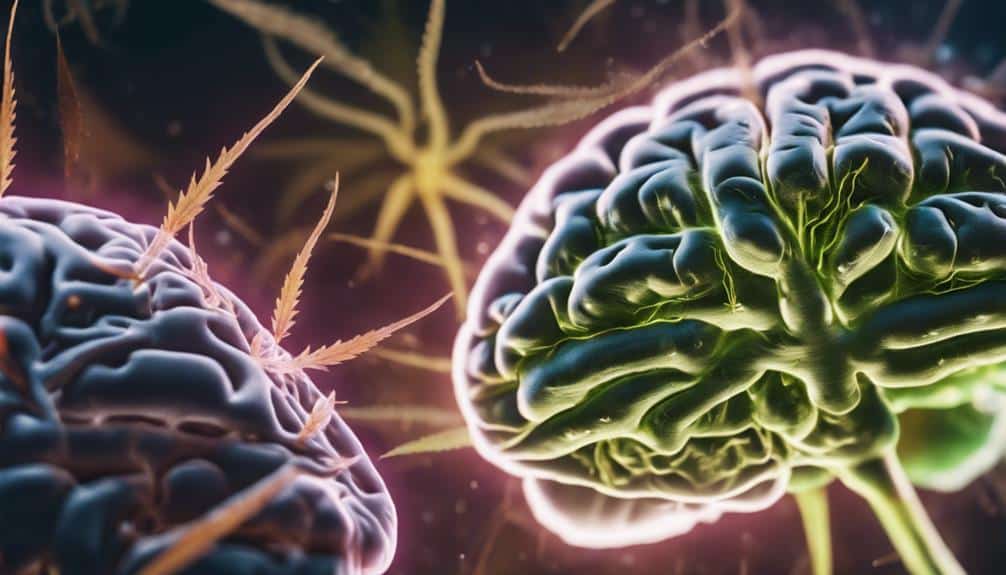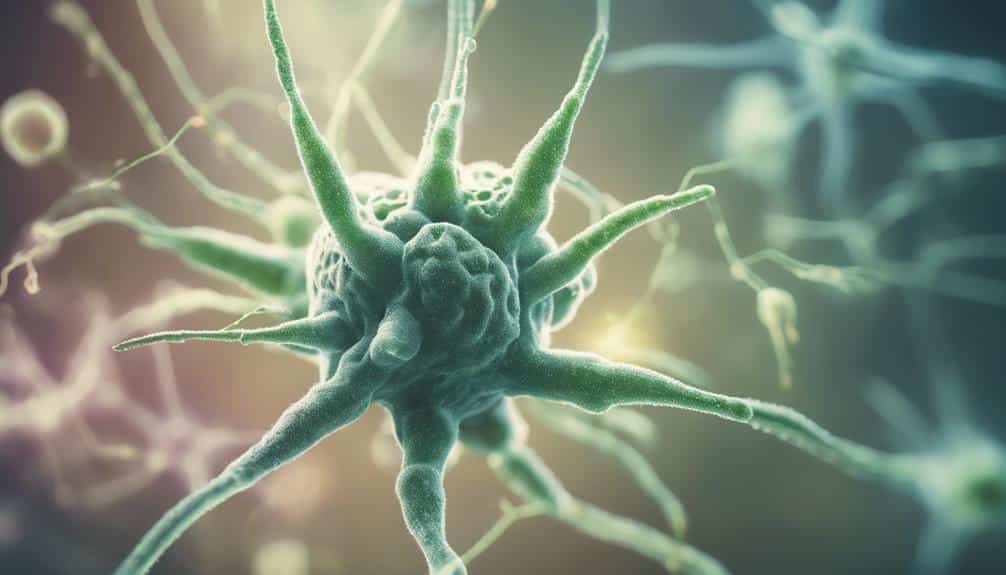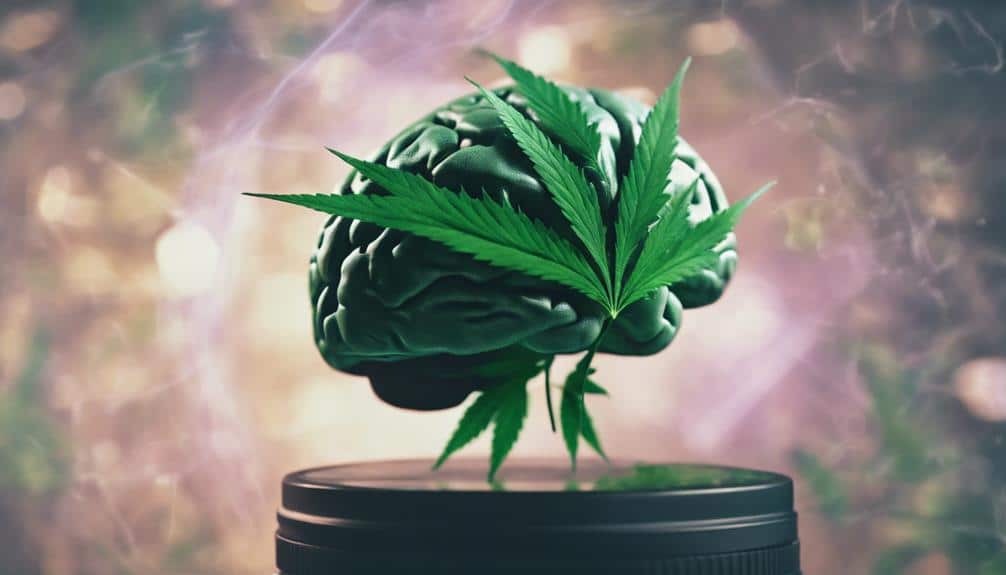Navigating the world of neurodegenerative disorders can feel like trying to find your way through a thick fog, can’t it?
Table of Contents
But what if we told you there’s a potential beacon in this fog, and it’s none other than cannabis?
Recent research suggests that components of cannabis, particularly CBD, may offer neuroprotective benefits.
However, before you jump on the bandwagon, there’s a complex landscape of evidence, potential benefits and risks to consider.
Stay with us; you’re about to uncover a whole new perspective on this controversial plant.
Understanding Neurodegenerative Disorders

To fully understand the potential benefits of cannabis in treating neurodegenerative disorders, you need a clear understanding of what these disorders are and how they impact the nervous system. Neurodegenerative disorders such as Alzheimer’s, Parkinson’s or Huntington’s disease are characterized by the progressive deterioration and loss of neurons. This loss disrupts the normal function of the brain and other parts of the nervous system leading to symptoms like memory loss, impaired cognition and motor dysfunction.
Genetic influences play a significant part in these disorders’ development. Certain genes may predispose you to these conditions with mutations often leading to abnormal protein build-up in the brain. However, lifestyle impacts such as diet, exercise and exposure to environmental toxins can also significantly contribute to neurodegenerative disorder onset and progression. They can exacerbate genetic vulnerabilities or even independently cause neuronal damage.
Understanding these factors is crucial in developing effective treatments. By knowing how genetics and lifestyle affect the nervous system, you’re better equipped to serve those in need. This knowledge can inform preventive measures, therapeutic interventions and lifestyle modifications that could slow or halt the progression of these devastating disorders.
Cannabis: An Overview
Having established the nature and impacts of neurodegenerative disorders, let’s now turn our attention to cannabis, a plant that’s been studied for its potential neuroprotective benefits.
Cannabis, often referred to as marijuana, is a complex plant with over 100 chemical compounds including the well-known tetrahydrocannabinol (THC) and cannabidiol (CBD). These compounds interact with your body’s endocannabinoid system contributing to the plant’s medicinal properties.
Cannabis cultivation techniques have evolved with growers focusing on optimizing the plant’s medicinal components. This is achieved by manipulating growing conditions like light, temperature and nutrient supply. Genetics also play a critical role with selection for certain traits helping to enhance the plant’s therapeutic potential.
Regarding medicinal cannabis legislation, it’s a landscape that’s rapidly changing. While it remains illegal in some parts of the world an increasing number of countries are recognizing its medicinal benefits and legalizing its use. Even in places where it isn’t fully legal exceptions are often made for medicinal use.
As you delve into the world of cannabis and its potential for treating neurodegenerative disorders it’s important to stay informed about the latest cultivation techniques and legislative changes. They could have significant implications for your work in helping others.
Mechanisms of Cannabis in Neuroprotection

As you delve deeper into the study of cannabis, it’s crucial to understand how its chemical compounds, particularly THC and CBD, contribute to neuroprotection potentially aiding in the treatment of neurodegenerative disorders. These compounds interact with the body’s endocannabinoid system which plays a key role in maintaining homeostasis in the body.
Cannabinoid receptors primarily CB1 and CB2 are central to this system. They’re found throughout the body and are activated by both naturally occurring endocannabinoids and plant-based cannabinoids like THC and CBD. The cannabinoid receptors’ role includes modulating neurotransmission reducing inflammation and protecting neurons from oxidative stress.
In the context of neurodegenerative disorders this endocannabinoid system influence can be harnessed for therapeutic benefit. Research suggests that cannabinoids can reduce neuroinflammation and promote neurogenesis thereby enhancing neuronal resilience and promoting recovery.
Understanding these mechanisms offers potential to develop targeted therapies that leverage cannabis’s neuroprotective properties. Further research is needed to fully unlock this potential and translate it into effective treatments for neurodegenerative disorders. It’s an exciting frontier in neuroscience and medicine, you’re on the ground floor poised to make a difference in countless lives.
Cannabis in Alzheimer’s and Parkinson’s Treatment
As you explore cannabis’ potential in treating Alzheimer’s and Parkinson’s it’s essential to examine compelling evidence indicating its therapeutic value for these conditions. Studies reveal that cannabis compounds particularly CBD and THC interact with the body’s endocannabinoid system to provide neuroprotective effects potentially mitigating these disorders’ progression.
Dosage determination is a crucial factor in this treatment approach. Research suggests that low to moderate doses can potentially minimize inflammation and oxidative stress both contributing factors to Alzheimer’s and Parkinson’s onset. However, the optimal dosage can vary based on the patient’s individual health profile intolerance to cannabis and disease stage.
Strain selection is equally important. Different cannabis strains possess varying levels of CBD and THC which could impact their therapeutic effectiveness. For example, strains with a higher CBD to THC ratio are often preferred for their anti-inflammatory and neuroprotective properties without causing significant psychoactive effects.
Potential Risks and Challenges

Navigating potential risks and challenges of cannabis use for neurodegenerative disorders requires understanding its pharmacological complexities and potential side effects. You must be aware of intricacies involved especially regarding ‘Dosage Dilemmas’ and ‘Regulatory Roadblocks’.
Now let’s delve into some of these challenges:
- Dosage Dilemmas: Determining correct dosage can be challenging. Too little may not provide desired neuroprotective effect; too much may lead to adverse reactions including dependency.
- Regulatory Roadblocks: Despite potential benefits, legal status of cannabis varies widely creating regulatory challenges for its use in treatment.
- Long-Term Effects: Long-term effects of cannabis on neurodegenerative disorders are still not fully understood which can be a cause for concern.
- Potential Side Effects: Cannabis use can lead to short-term side effects such as dizziness, dry mouth and changes in mood or perception.
These issues underscore the need for further research to optimize cannabis use in treating neurodegenerative disorders. It’s crucial to address these challenges responsibly, prudently and with unwavering commitment to patient welfare.
Conclusion
In conclusion, you’ve seen how cannabis can potentially revolutionize treatment of neurodegenerative disorders. While it’s not a cure-all its neuroprotective properties provide hope for those grappling with diseases such as Alzheimer’s and Parkinson’s. However, it’s crucial not to get ahead of ourselves. The possible risks and challenges associated with cannabis use mustn’t be overlooked. Further scientific research is vital to achieve complete understanding of the balance between potential advantages and drawbacks.
If you’re interested in learning more about this fascinating topic why not visit us at Cannabis Docs of Delaware? We’d love to chat answer any queries you might have and provide more detailed information. Our doors are always open to those eager to learn more about potential of cannabis in treating neurodegenerative disorders. So give us a call or drop by – we’re here to help!

